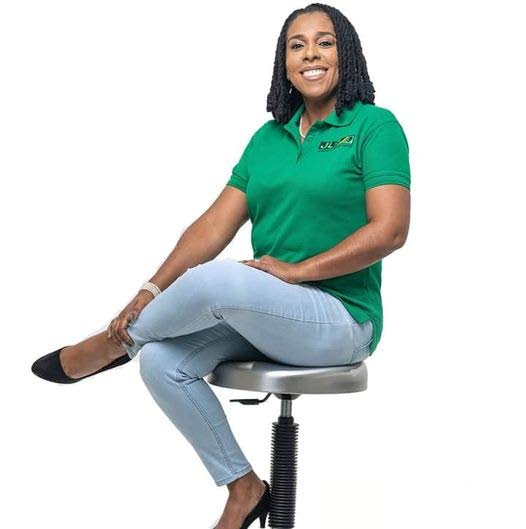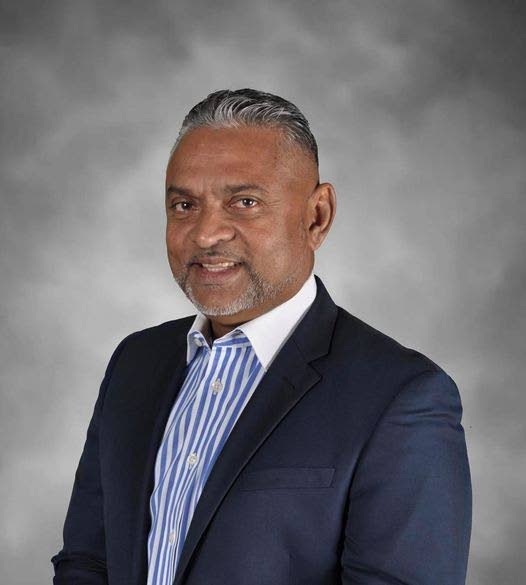Jamaica crime fighting template: Pointers for Trinidad and Tobago

THE UWI Trade and Economic Development Unit of the St Augustine Campus, hosted a virtual pre-budget discussion aimed at exploring how crime influences budgetary decisions, the overall economic landscape and the implications for effective policy-making.
The discussion titled, Does the Level of Crime Derail the Good Intentions of the Upcoming Budget?, was held on September 27.
The event featured Jamaican High Commissioner to Trinidad and Tobago, Natalie Campbell-Rodriquez, who shared insights from Jamaica's experience in crime reduction.
With a background as a consultant, columnist, municipal councillor and educator, she previously served as a government senator.
Campbell-Rodriques expressed pride in Jamaica's progress as a "small island developing state" in the Caribbean and stressed the importance of sharing the country's experiences, particularly in the context of public safety and security, overseen by Jamaica's Ministry of National Security, headed by Minister Horace Chang.
Acknowledging Jamaica's challenges with transnational crime due to its geographical location, she said the ministry's central approach to this is a three key policy directions: transforming security agencies, investing in socially challenged communities and ensuring a relevant legislative framework.
This includes the modernisation of the Jamaica Constabulary Force (JCF), which has involved significant infrastructure improvements under Project ROC (Rebuild Overall and Construct), rehabilitating 14 police stations and constructing new facilities with a US$95.6 million investment.
Campbell-Rodriques said technological advancements are also crucial for enhancing police productivity and the JCF has upgraded its communication systems, deployed body-worn cameras and implemented computerised systems for efficient data access.
Additionally, the JCF achieved International Standards Organisation certification for quality management, further enhancing operational effectiveness. She said community investment is another focus of the government, with the government identifying the 100 most vulnerable communities through objective measurements.
Initiatives like Zones of Special Operations (ZOSOs) have introduced specialised police surveillance and curfews to instill order and promote social engagement, including essential services like obtaining birth certificates and driver’s licences.
Campbell-Rodriques said collaboration among government ministries and community members has been vital, as seen in the Citizen Security Plan, which has created safe spaces, government-run shelters for violence victims, and training programs for at-risk youth and parents.
She describes the approach as "holistic" and it addresses psychosocial needs within communities, providing critical support for violence prevention.
In terms of border security, she said Jamaica has invested in coastal radar systems and maritime patrols to combat drug trafficking. Legislative updates have included laws to address organised crime, gun control and money laundering, reflecting a comprehensive strategy to enhance national security.
Campbell-Rodriques reported positive outcomes from these efforts, noting a steady decline in major crimes and a significant drop in murder rates. She expressed optimism that Jamaica's policy framework could further reduce crime levels if supported and sustained.
In conclusion, she highlighted the importance of academics in fostering collaboration between Jamaica and Trinidad and Tobago, both of which she said were facing similar security challenges. With continued co-operation, she believes both nations can achieve peace and prosperity for citizens.
An April 2024 report from the JCF revealed a reduction in several major crime categories during the first quarter of 2024 compared to the same period in 2023. Commissioner of Police Dr Kevin Blake said murders decreased by 13 per cent, shootings by four per cent and rape cases by 38 per cent.
Property crimes, particularly break-ins, saw a 17 per cent decline, although robberies remained the same. Blake highlighted a nine per cent increase in arrests and charges for major crimes.

He said efforts to recover illegal firearms were yielding significant results, with a seven per cent rise in gun seizures this year, predominantly involving pistols. Ammunition seizures also increased by 41 per cent.
Blake credited the country's new Firearms Act for providing legislative support and he said there will be a greater focus on removing illegal weapons from communities.
Following Campbell-Rodriques, Garvin Heerah, a retired military officer with over 30 years of combined military and law enforcement experience, took the stage.
Heerah previously served as the head of the National Operations Centre and is recognised as an expert in organisational transformation and strategic leadership.
He has also lectured at Anglia Ruskin University in the UK and has been a member of the faculty of the European Centre for Security Studies in Germany, which has deepened his understanding of international security trends.
An advocate for a people-first approach in organisations, Heerah stressed the importance of community and collaboration. Before diving into his presentation, Heerah expressed sorrow over the shooting near St Francois Girls' College in Belmont on September 27.
He stressed the dangers faced by journalists in such situations and cautioned the media about the increasing risks in Trinidad and Tobago, saying,
"I know your eagerness to capture the story, but please ensure that you are equipped with the proper personal protective equipment, such as bulletproof vests and helmets."
He highlighted the serious threats journalists face, particularly when they are caught in the crossfire of gang violence.
On September 27, two suspects involved in a shooting on Serraneau Road in Belmont were apprehended after hiding in a drain opposite St Francois Girls' College.
Two men, Curtis Jones and Pafawa Roberts, were shot earlier that day, prompting a police manhunt when the suspects fled in a car and jumped into the drain.
Police, acting on a tip-off, surrounded the area by 2.30 pm. As a result, classes were dismissed at the college, and parents who spoke to Newsday expressed concerns about safety.
During the manhunt, officers shouted for the suspects to surrender and one suspect was pulled from the drain, appearing unharmed. Shortly after, officers fired shots into the drain, indicating a possible confrontation with the second suspect.
The other suspect was dragged out the drain by officers, his body appearing motionless: he later succumbed to his injuries at the Port of Spain General Hospital.
Heerah's said fear spans all societal strata, affecting everyone regardless of their status. Referencing the September 17 robbery of Health Minister and MP for St Joseph Terrence Deyalsingh, who was robbed at gunpoint while in his constituency.
Two armed men confronted him, stealing his bera – a traditional Indian-style gold bracelet – before fleeing in a car.
A viral video captured Deyalsingh after the robbery, where he was seen sitting outside the bar speaking on the phone to someone he referred to as “minister.” In the clip, he said,
“I am just letting you know where crime has reached,” Deyalsingh said. “The police is here, you don’t have to get involved, I am just letting you know.”
Heerah said a sense of insecurity has become pervasive and as the budget review approaches, he expressed hope that increased funding for national security and related ministries will help alleviate fear and mitigate its economic impact.
He stressed the urgent need for effective measures to restore public safety and, consequently, confidence in the economy. Heerah concluded by saying these pressing issues are crucial not only for the well-being of citizens but also for the overall stability of Trinidad and Tobago.

Comments
"Jamaica crime fighting template: Pointers for Trinidad and Tobago"